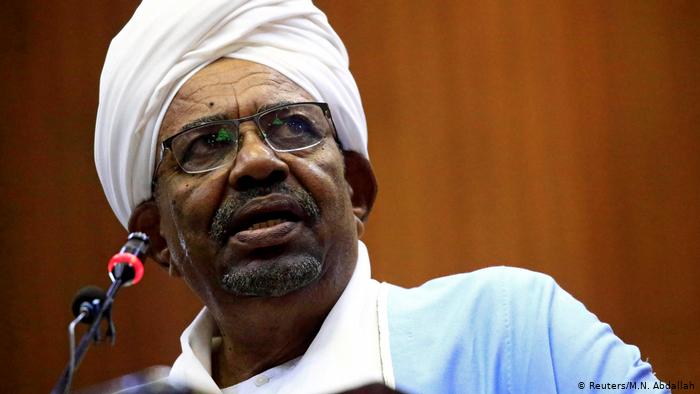Sudan’s military have overthrown and arrested President Omar al-Bashir after months of protests against his nearly 30-year rule.
The country’s defence minister declares Sudanese leader ‘toppled’, and announced the suspension of the constitution and two-year military rule.
As reported by Al-Jazeera, General Awad Ibn Auf said al-Bashir was taken to a “safe place” after the “toppling of the regime” and also announced the formation of a military-led transitional government, which will rule for two years.
“The armed forces will take power with a representation of the people to pave the way for Sudanese people to live in dignity,” said Ibn Auf, the country’s vice president and defence minister.
There will also be a three-month state of emergency and the suspension of the 2005 constitution, as well the closure of Sudan’s airspace for 24 hours and of border crossings until further notice.
All of Sudan’s government’s institutions, including the National Assembly and national council of ministers, have been dissolved, Ibn Auf added, assuring that Sudan would soon prepare for “free and fair” elections.
Ibn Auf’s announcement came on the heels of six-day anti-government protests outside Sudan’s army headquarters in the capital, Khartoum.
Protesters have held a mass sit-in outside the complex to call for the army to support their bid to see al-Bashir peacefully removed from power.
The Sudanese Professionals Association (SPA), which has been spearheading the protests, rejected Ibn Auf’s move as a “military coup”, however, and vowed to hold further demonstrations.
The SPA said in a tweet it was demanding the “handover of power to a civilian transitional government that reflects the forces of the revolution”.
Al-Bashir, who took power in 1989 and currently wanted by the International Criminal Court, lost public support in December over rising bread prices, which soon became calls for him and his political entourage to release their grip on power.
The 75-year-old was accused mismanaging Sudan’s economy, resulting in high food prices, regular fuel shortages and widespread cash shortages.
READ ALSO: Fraudulently activated SIM cards: NCC warns on its dangers
Representatives of the anti-government Girifna resistance movement, which has helped organise the anti-government protests, said the group would also continue to protest until its demands for a political overhaul were met and described Ibn Auf’s announcement as a “slap in the face”.
“The three-month state of emergency and two years transition is not what we were fighting for,” a Girifna member was quoted as saying.
“We are going to use the same momentum that we had to fight Ibn Auf, he is the new enemy … we are not done,” he added.

